Amongst our analyses we look at the quality of players, team’s offensive and defensive capabilities, and each country’s ability to effectively manage the load on their squad. Going into Sunday’s final we look at our two finalists and try to identify if there are any areas of the game where one team or the other has a statistical advantage. A sneak preview: it may be too close to call.
Squad Value
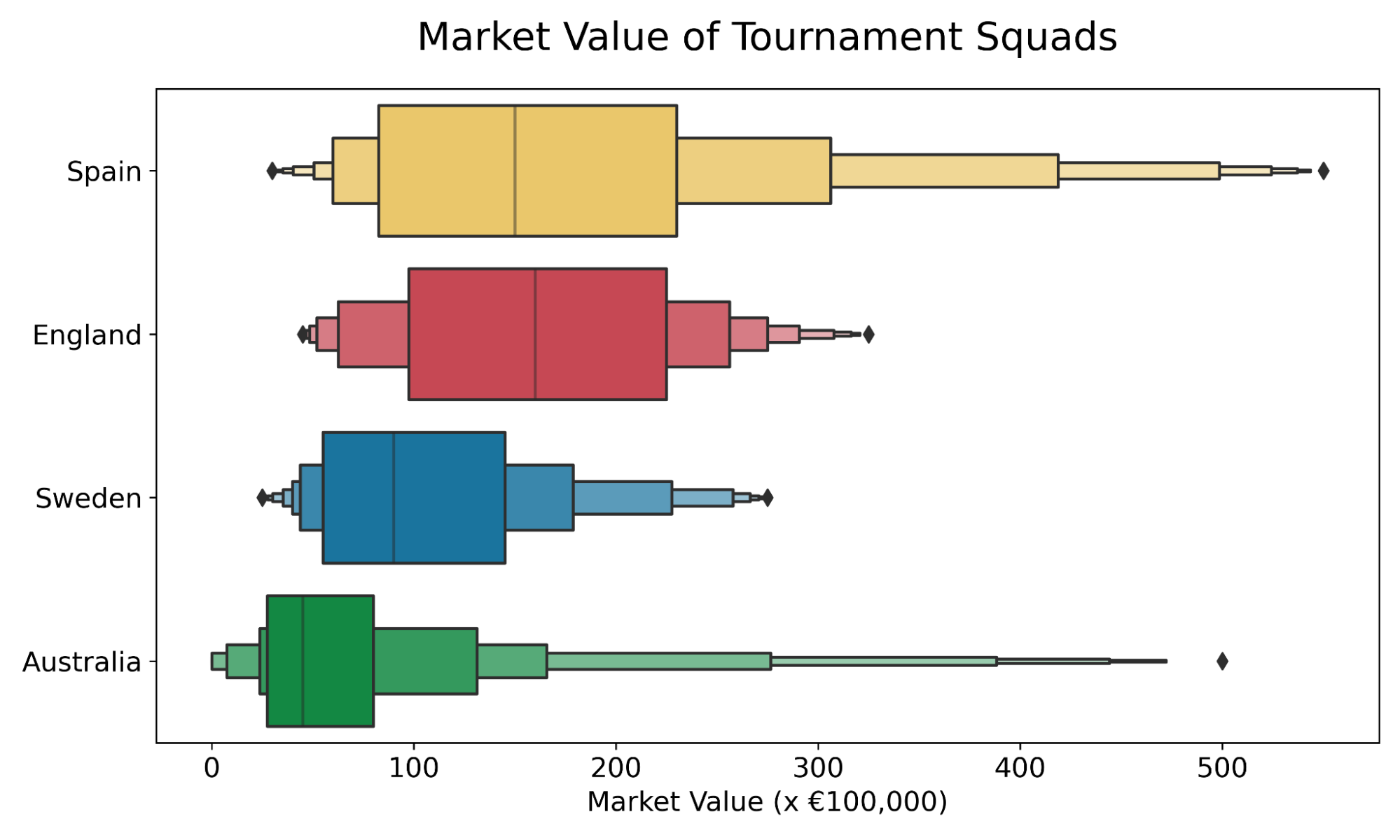
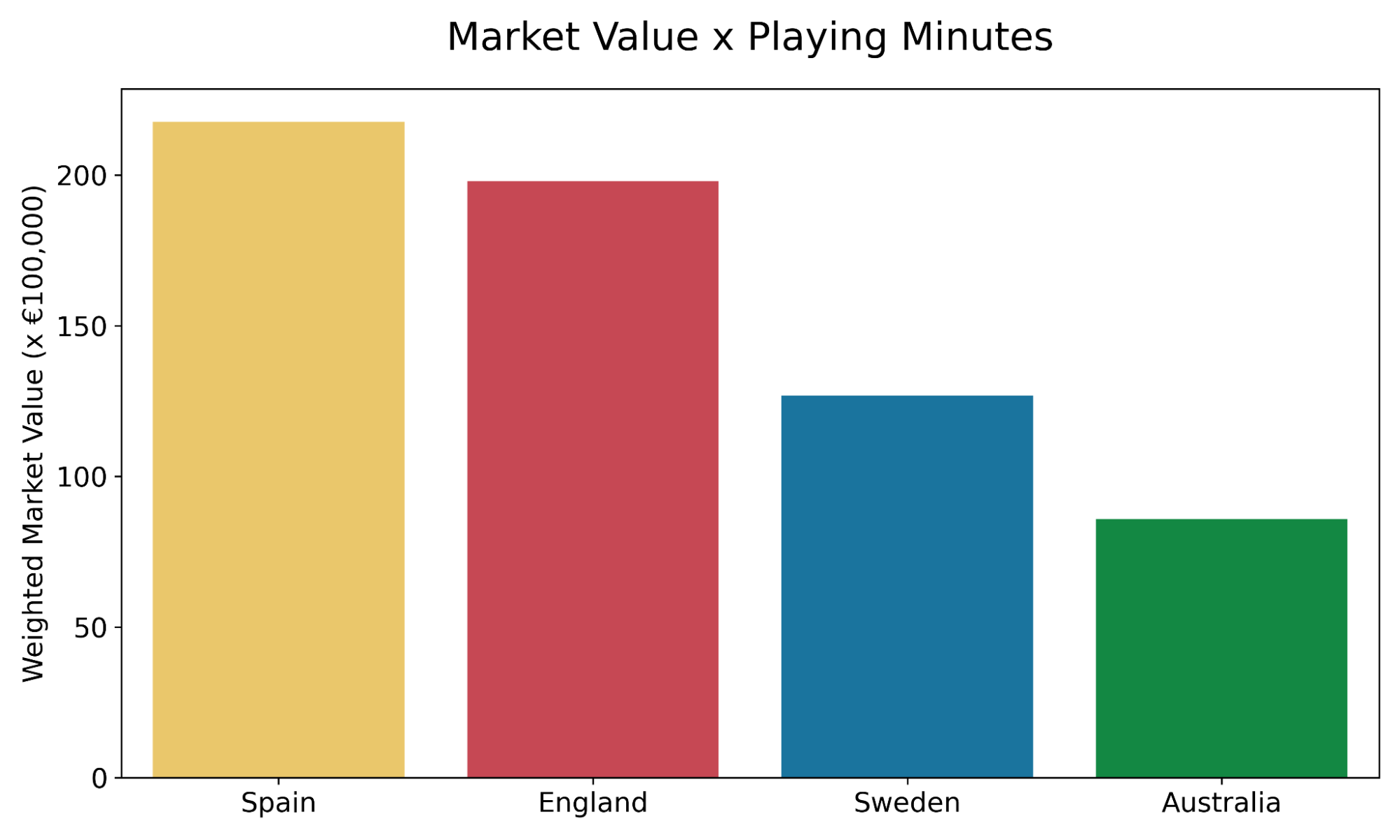
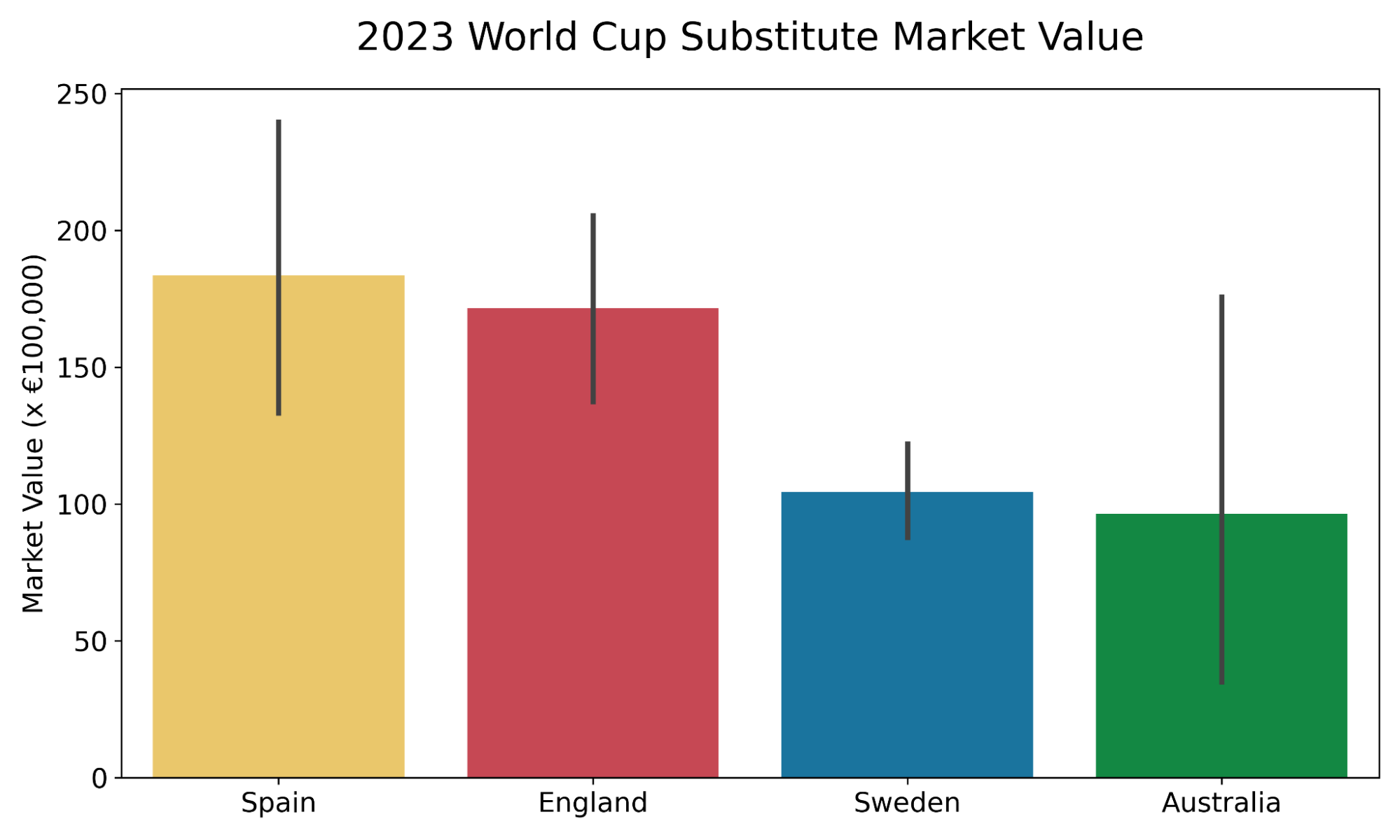
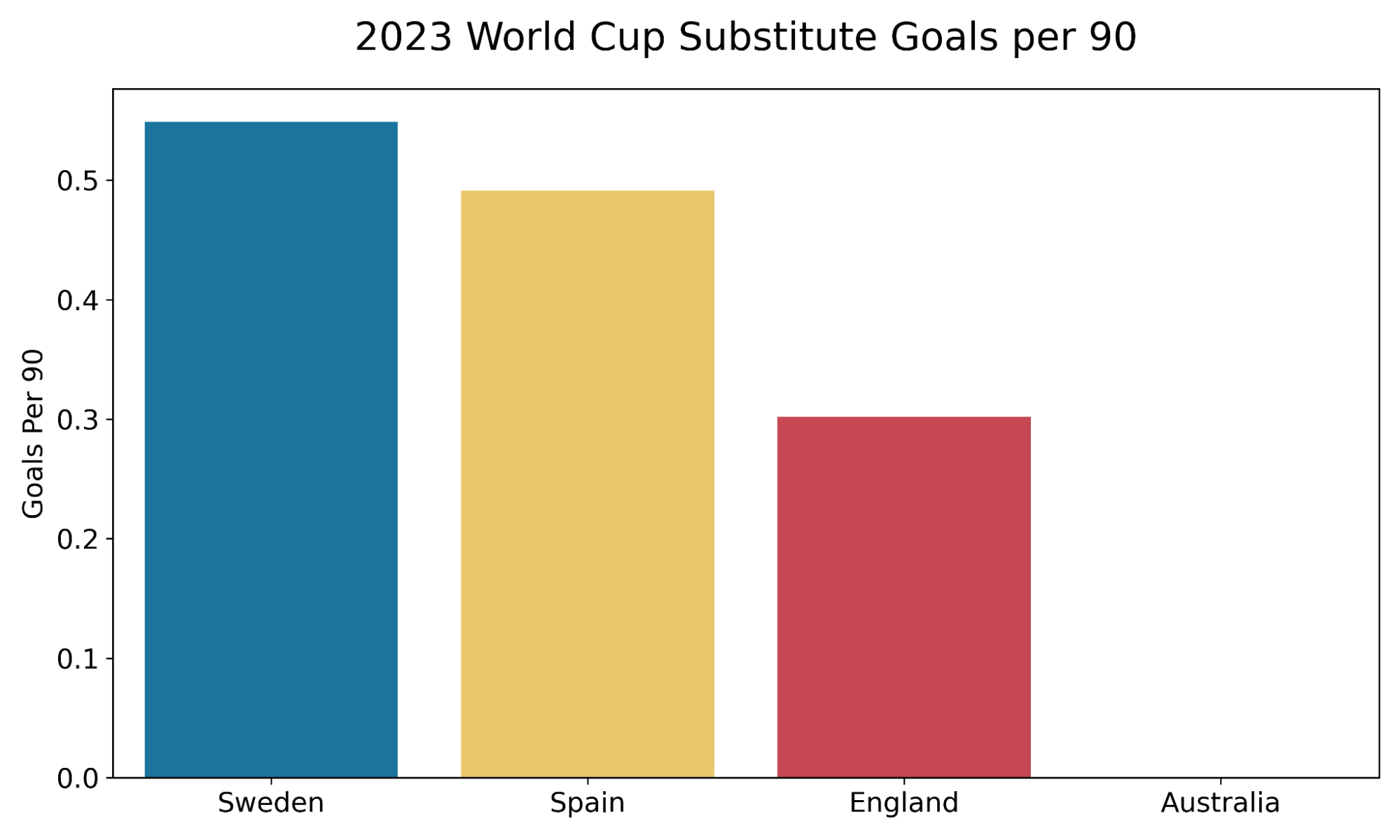
Spain has a more valuable squad overall than England. This has allowed them to get a higher quality of player onto the pitch than England, and also allowed them to make higher quality replacements late in games, leading to major contributions from the bench. Nowhere has this been more evident than in the past two rounds, with Salma Parallulo changing the game from the bench with goals to down the Netherlands and Sweden.
Verdict: Advantage Spain
Attacking Prowess
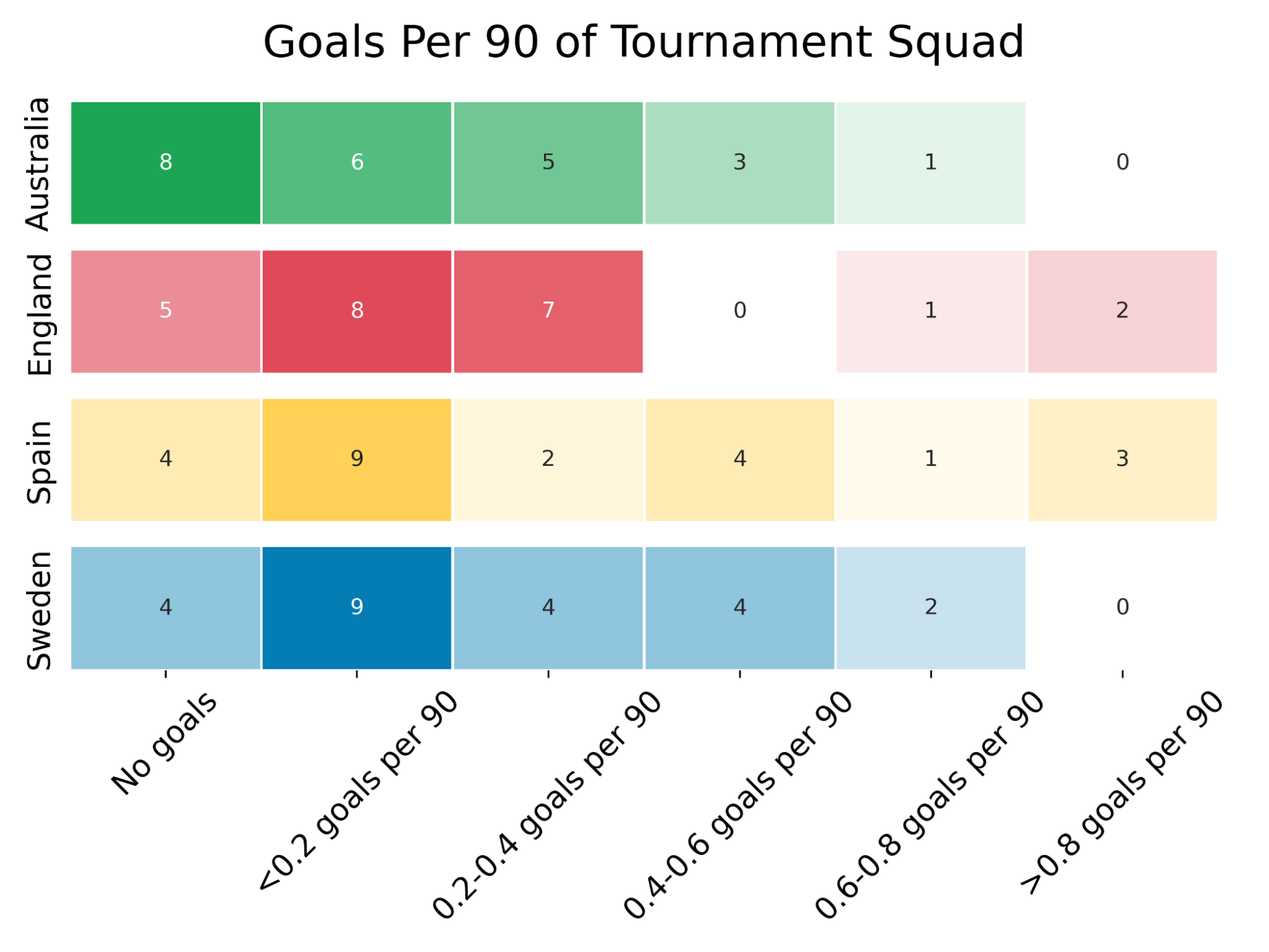
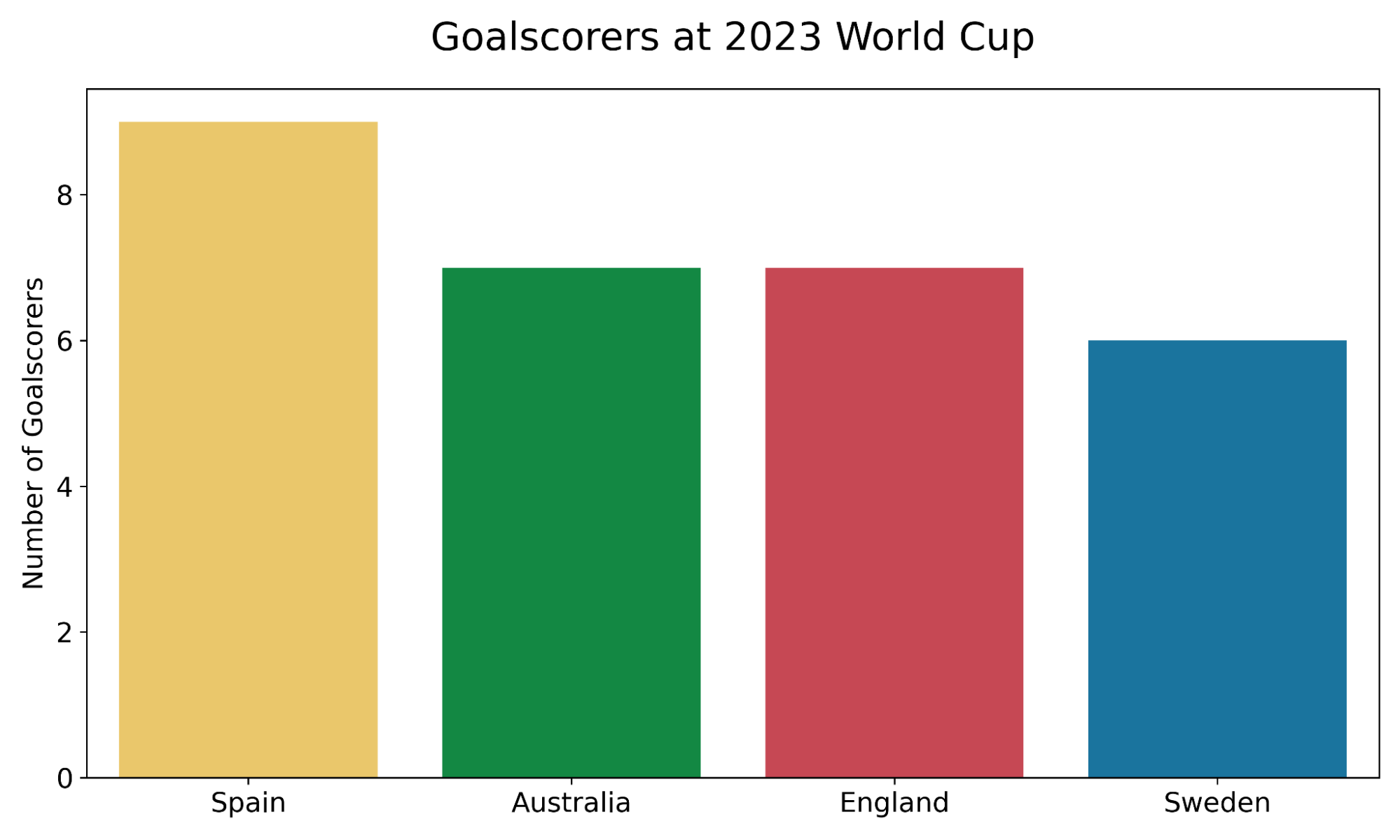
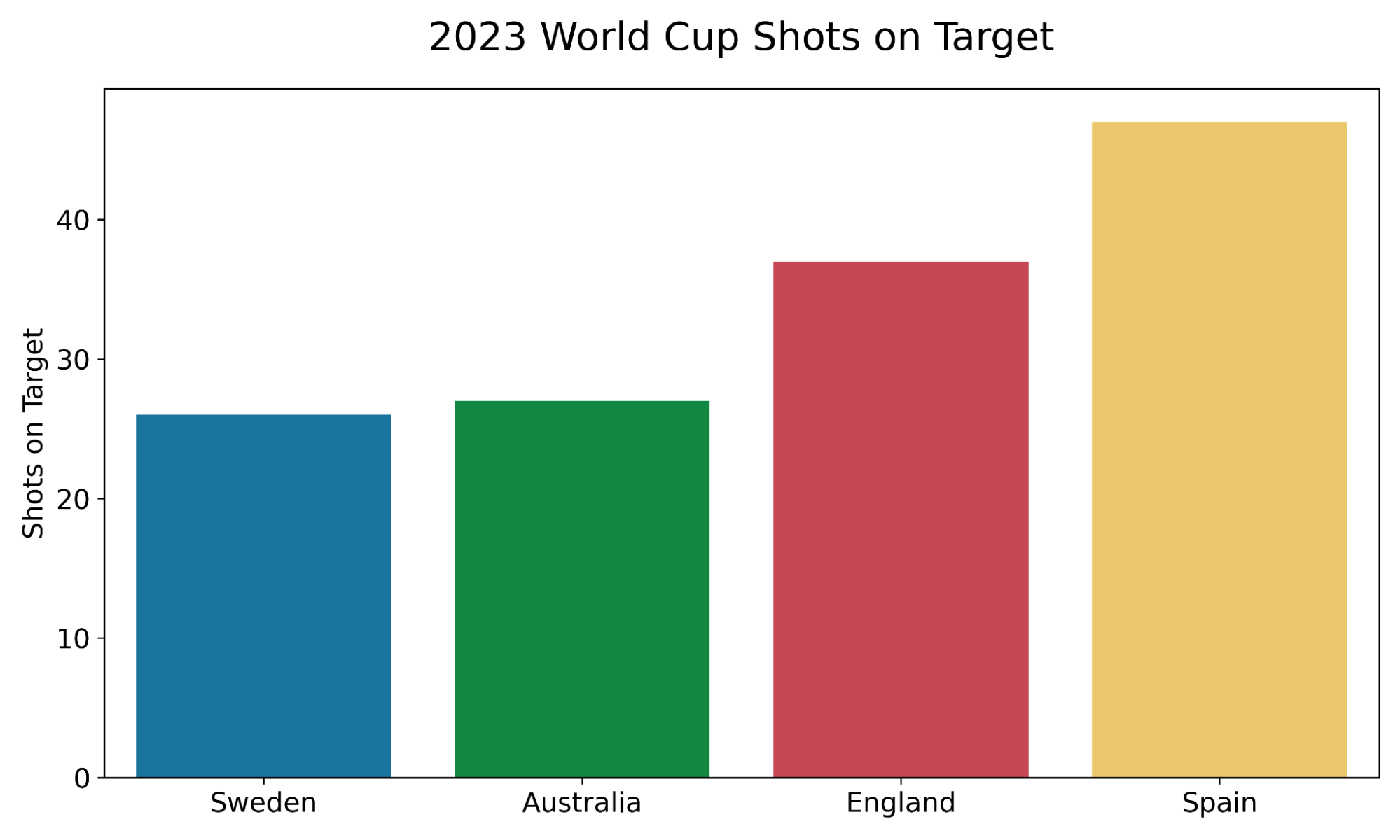
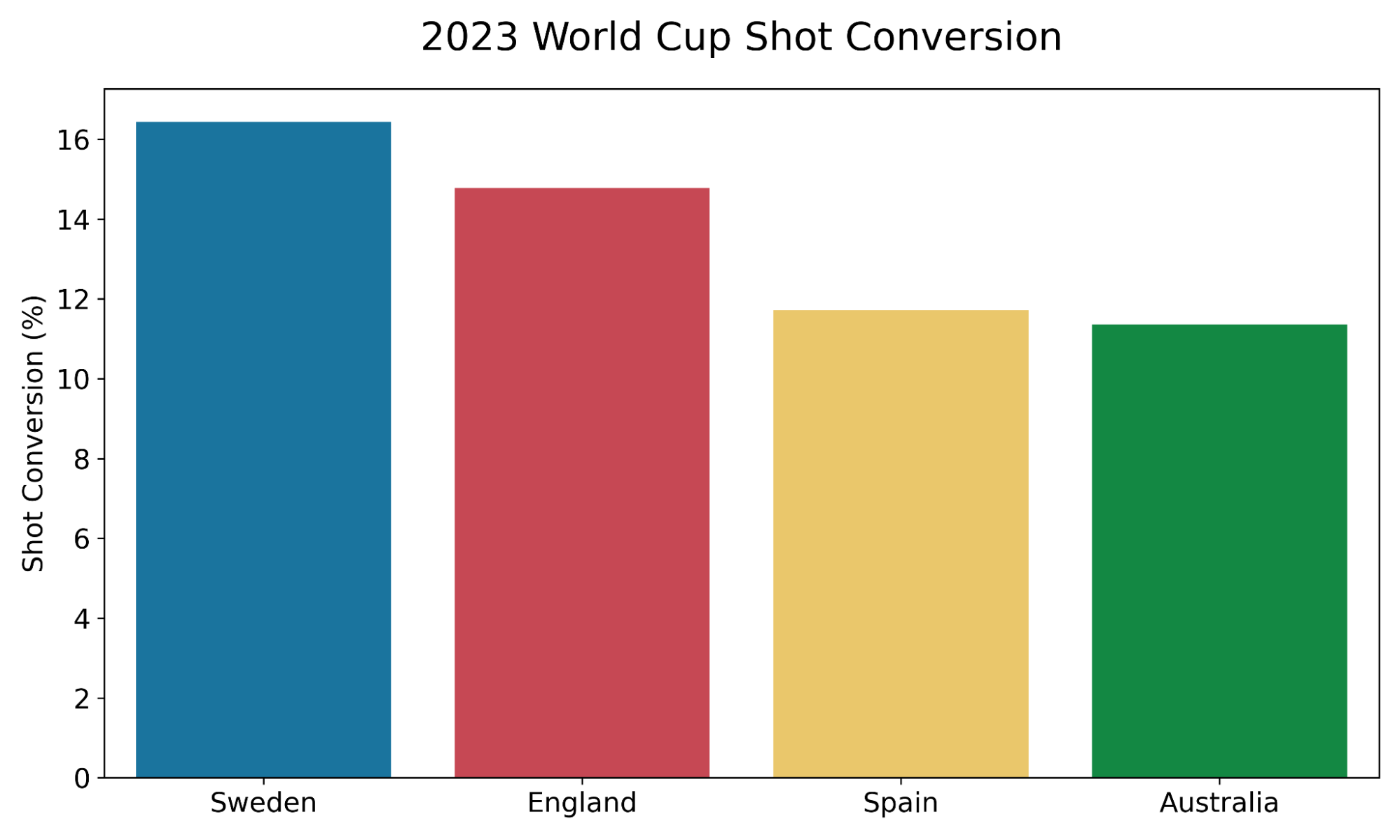
Spain has more elite goalscorers than England. 9 Spanish players have contributed a goal in the tournament, making them incredibly resilient against underperformance from any individual player. Spain created the most opportunities, with the most shots and shots on target in the tournament. However, England has the advantage when it comes to conversion, they convert over 15% of their shots, compared to under 12% for Spain. This comes from the accuracy of their shooting, England having played a conservative game early in the tournament and waiting to create good chances. Spain will need to out-create England to win this game, though their performance so far suggests they have the ability to do this.
Verdict: Advantage Spain
Defensive Ability
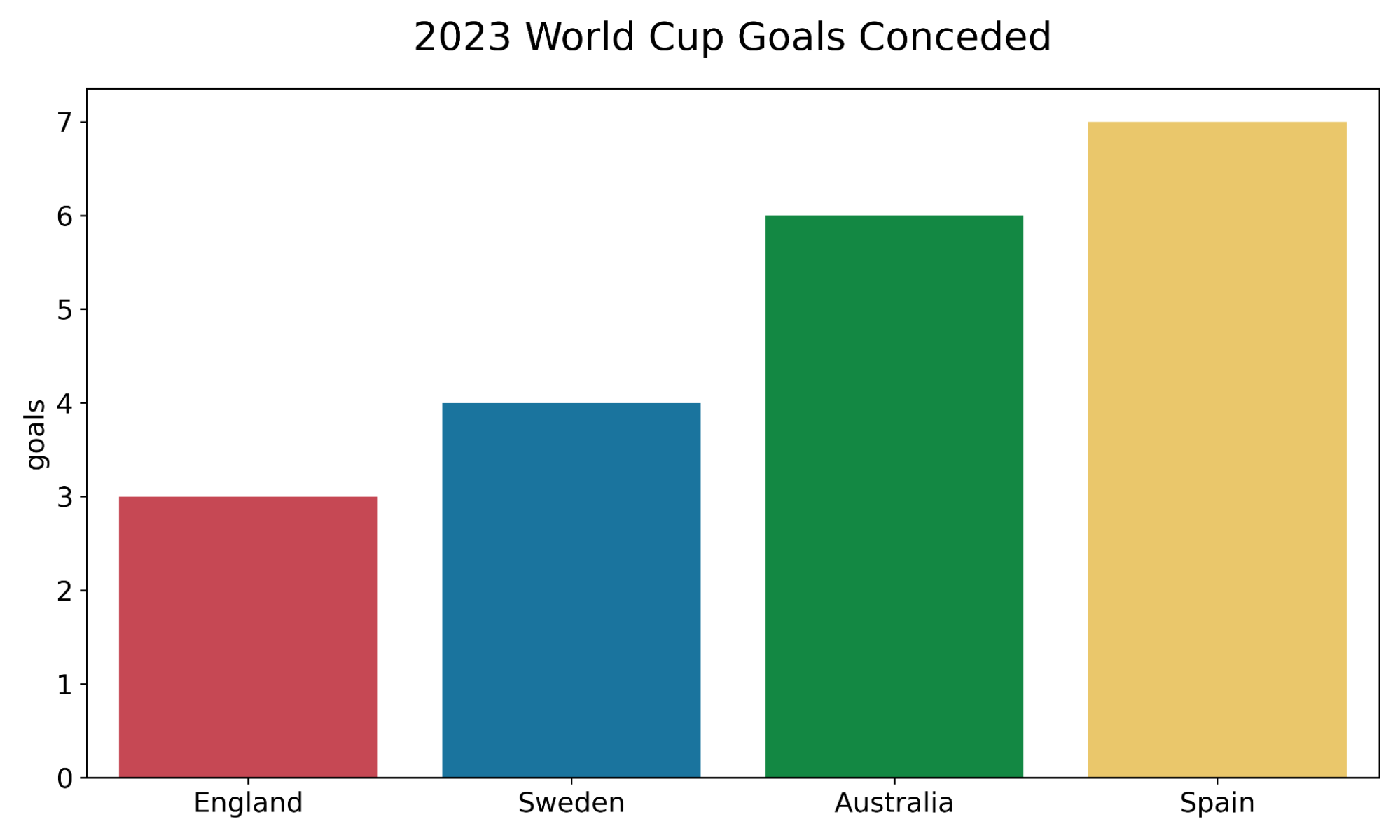
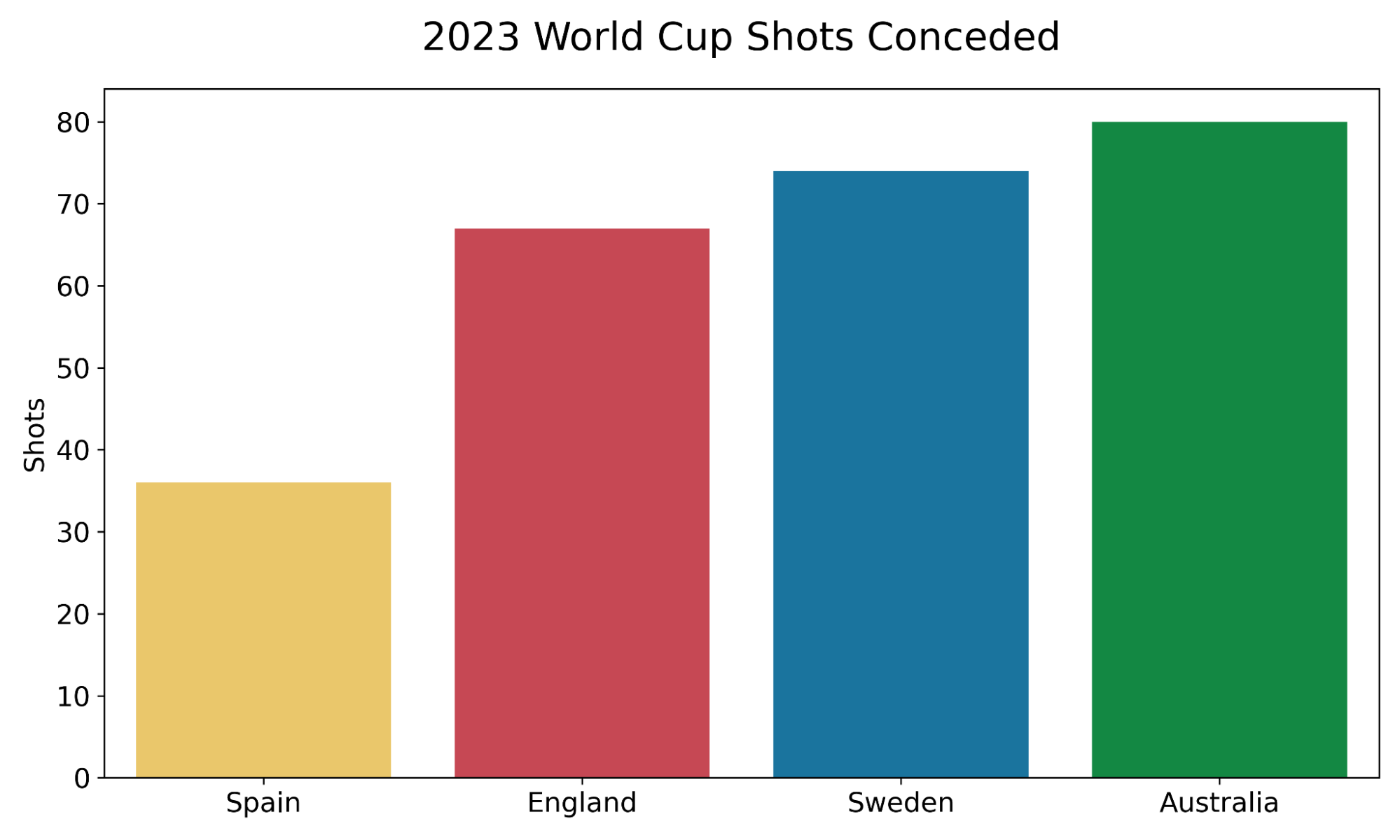
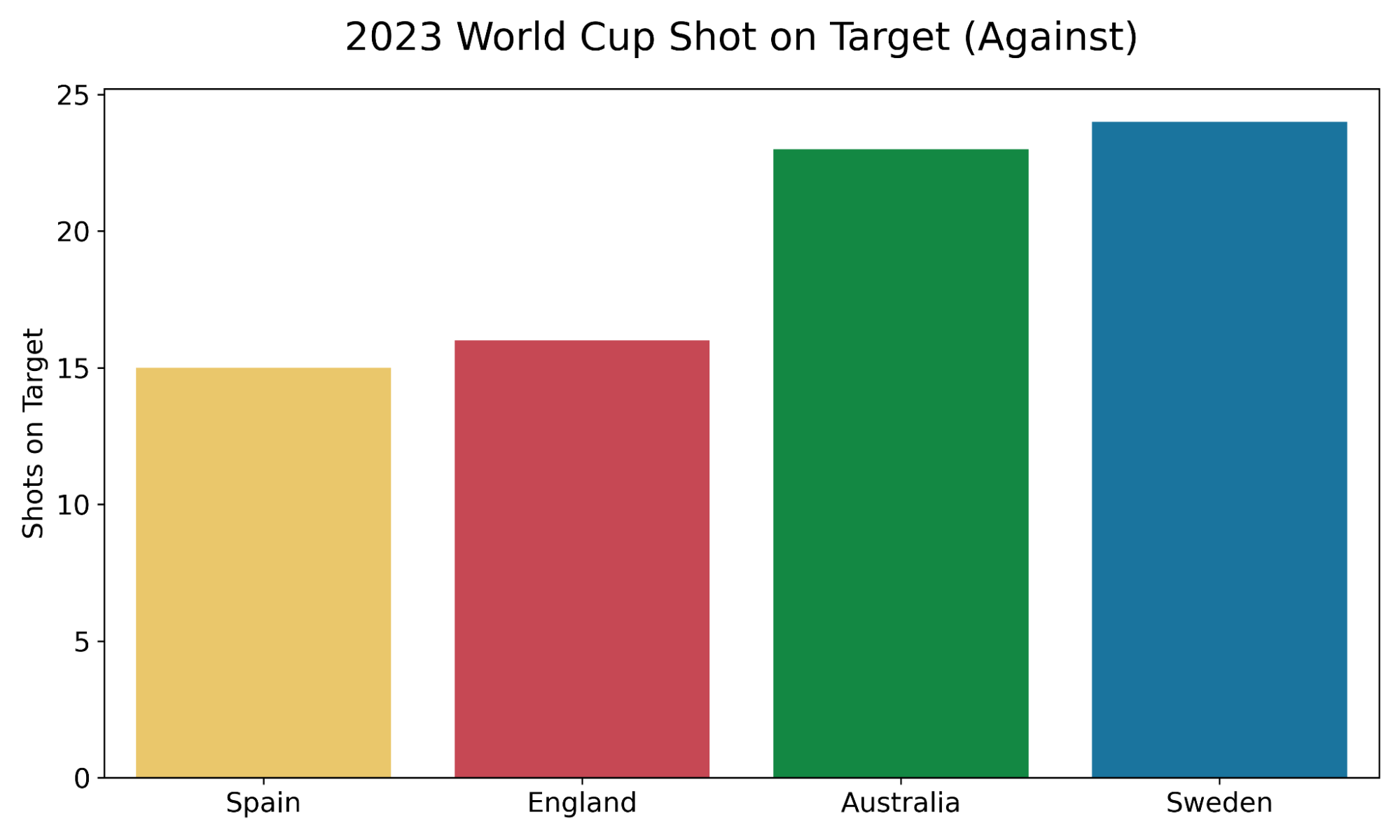
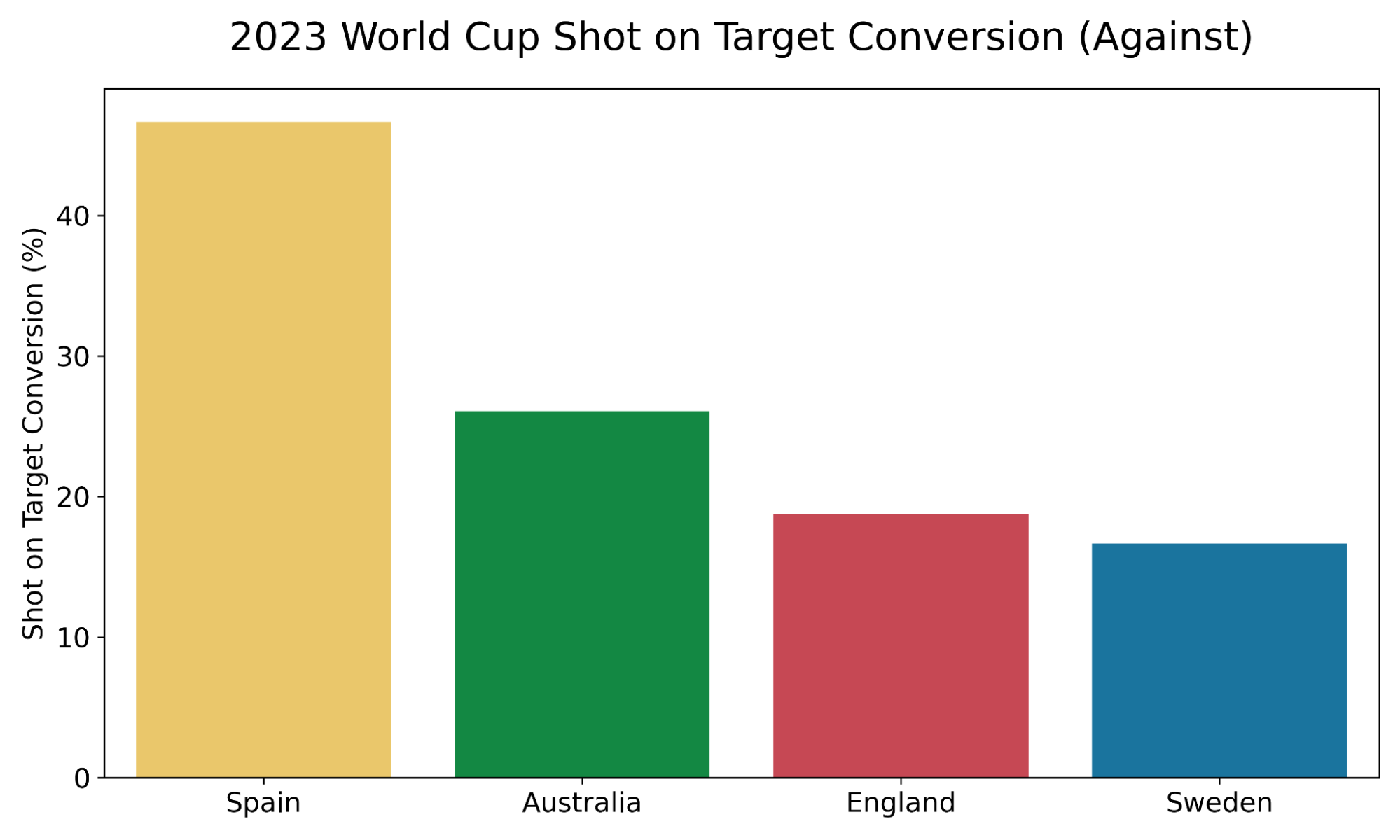
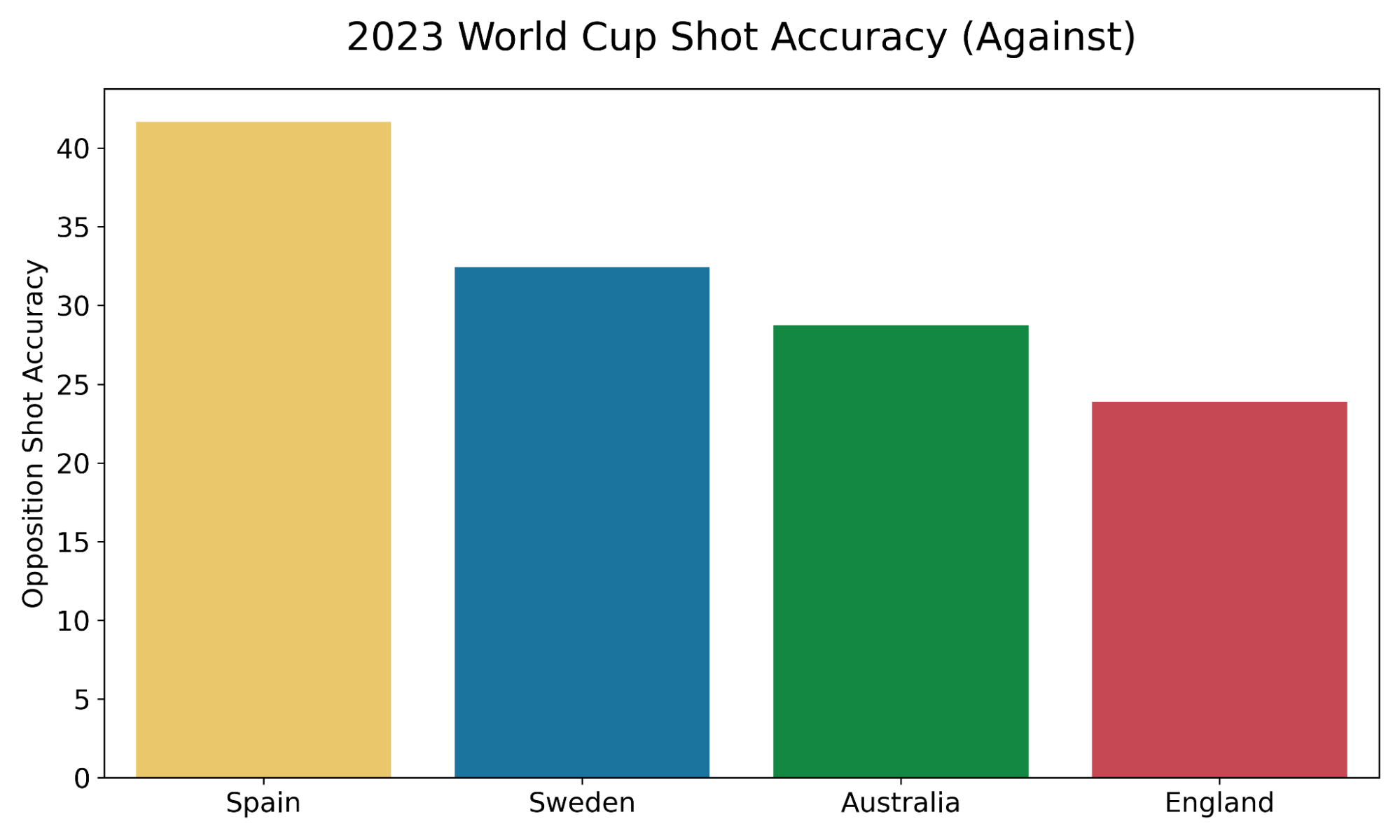
Spain has conceded very few shots over the course of the tournament – roughly half that of any of the top 4. Their defensive prowess ends there however; teams have the highest shot accuracy against Spain, and convert nearly 50% of their shots on target against them. Very few chances are required to score goals against Spain, as exemplified by Japan’s rout in the group stages where 4 goals were scored from just 5 shots on target. As a result Spain has conceded the most goals of any of the final 4.
England has been strong defensively over the course of the tournament. They have conceded just 3 goals on their way to the final. They’ve done this by limiting the quality of chances their opposition have had. England’s defensive pressure has led to just 25% of opposition shots hitting the target. With reigning World Goalkeeper of the year, Mary Earps, between the posts, England has a top shot stopper between the posts, and her save percentage of over 80% ranks her as one of the top keepers in the tournament.
Verdict: Advantage England
Squad Freshness and Load Management
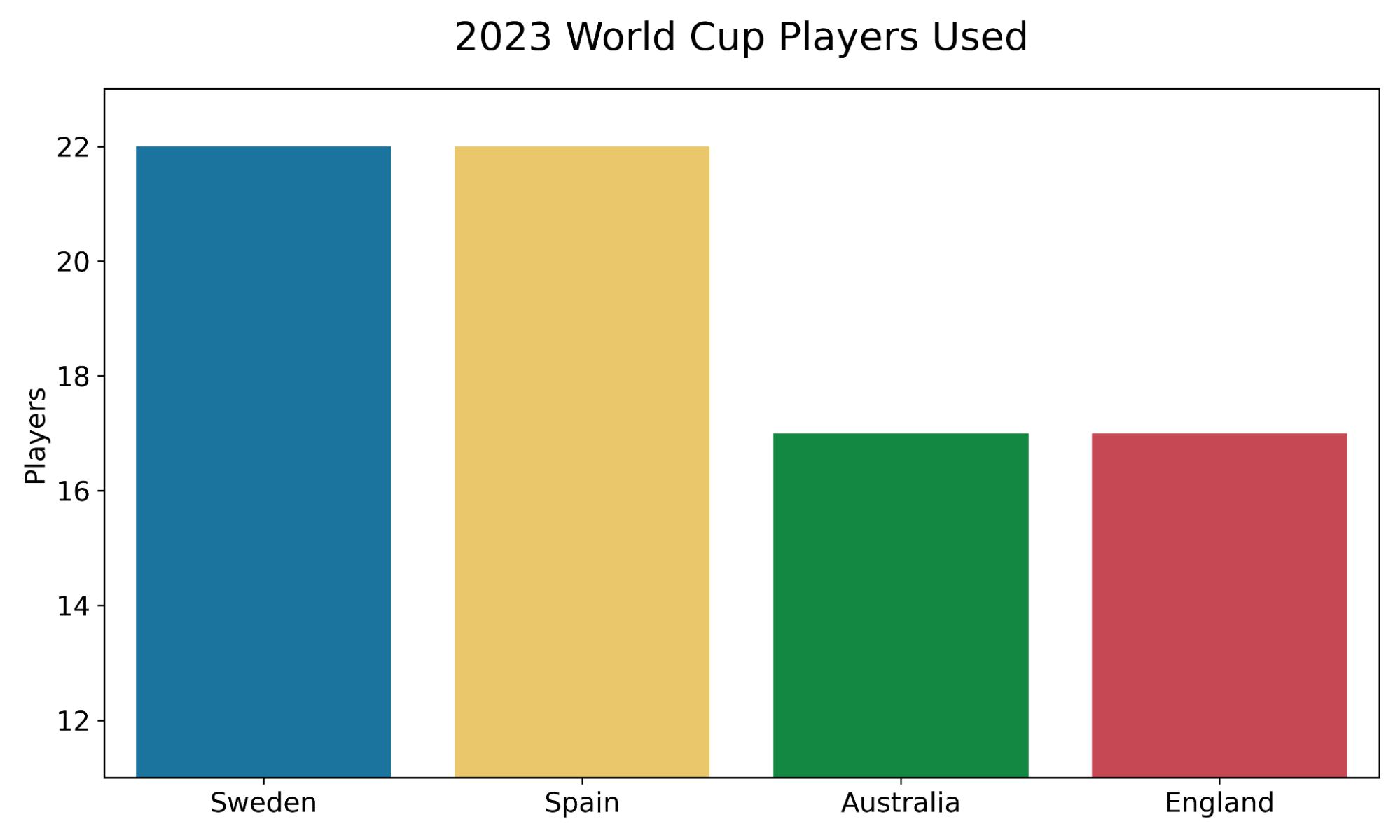
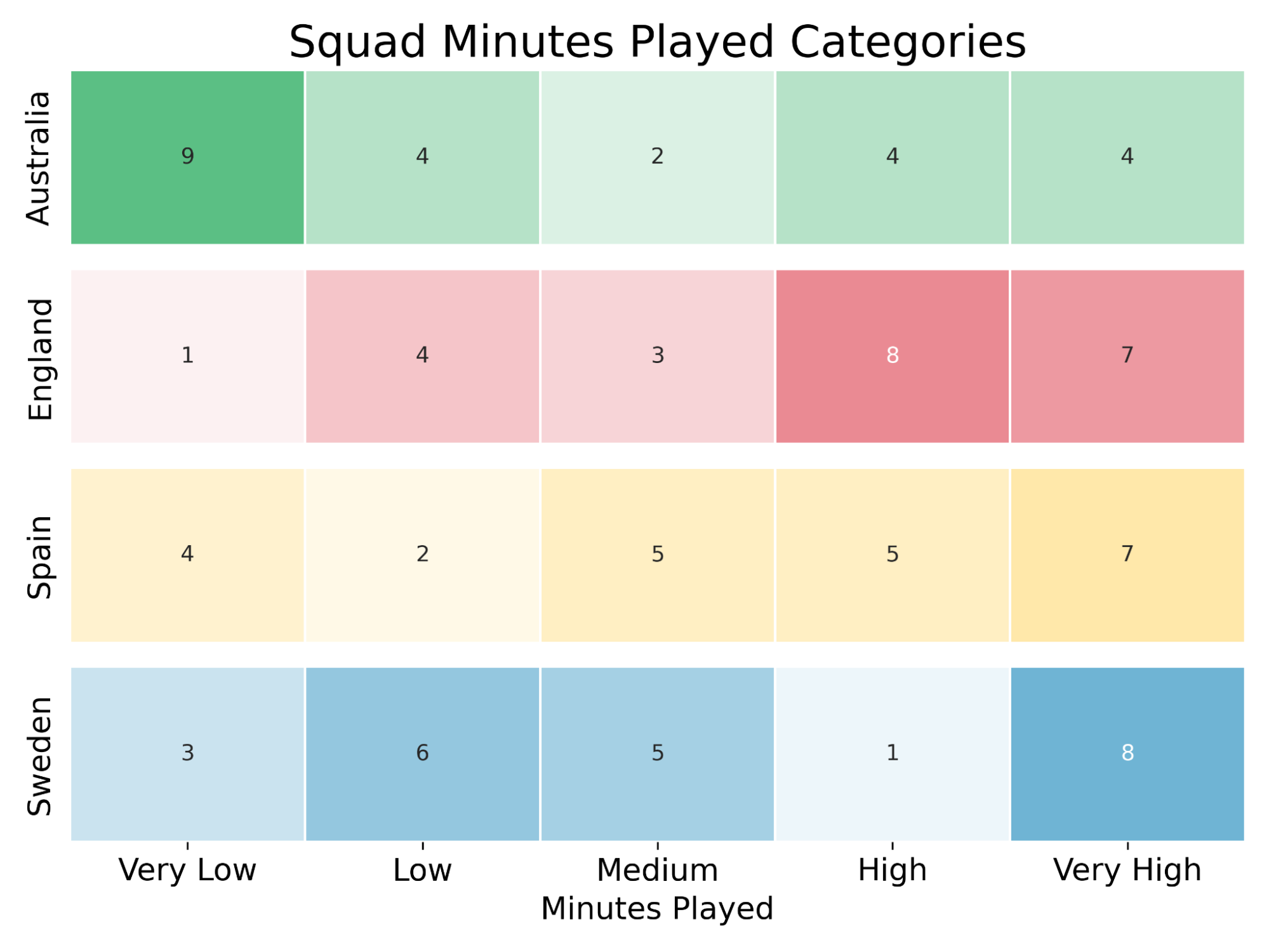
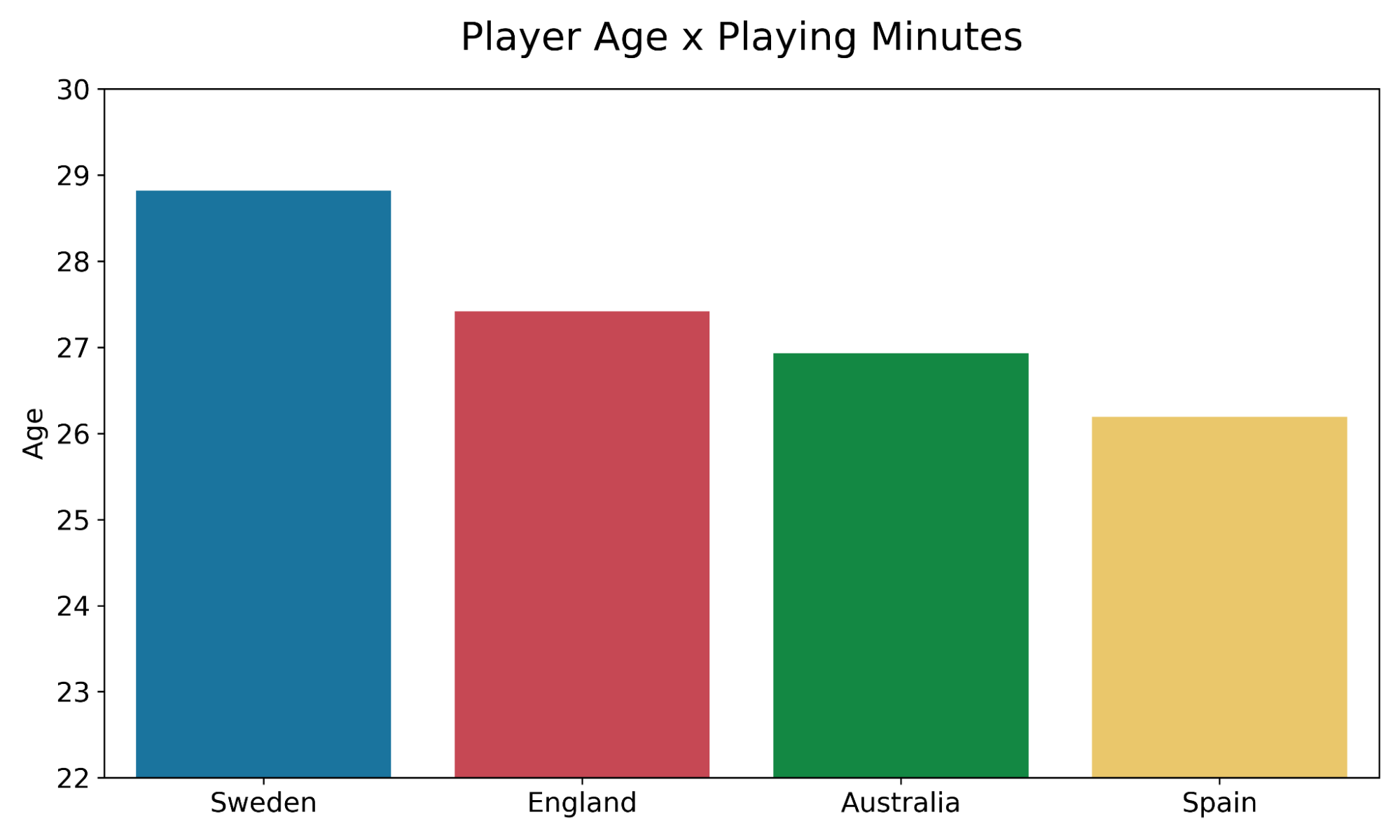
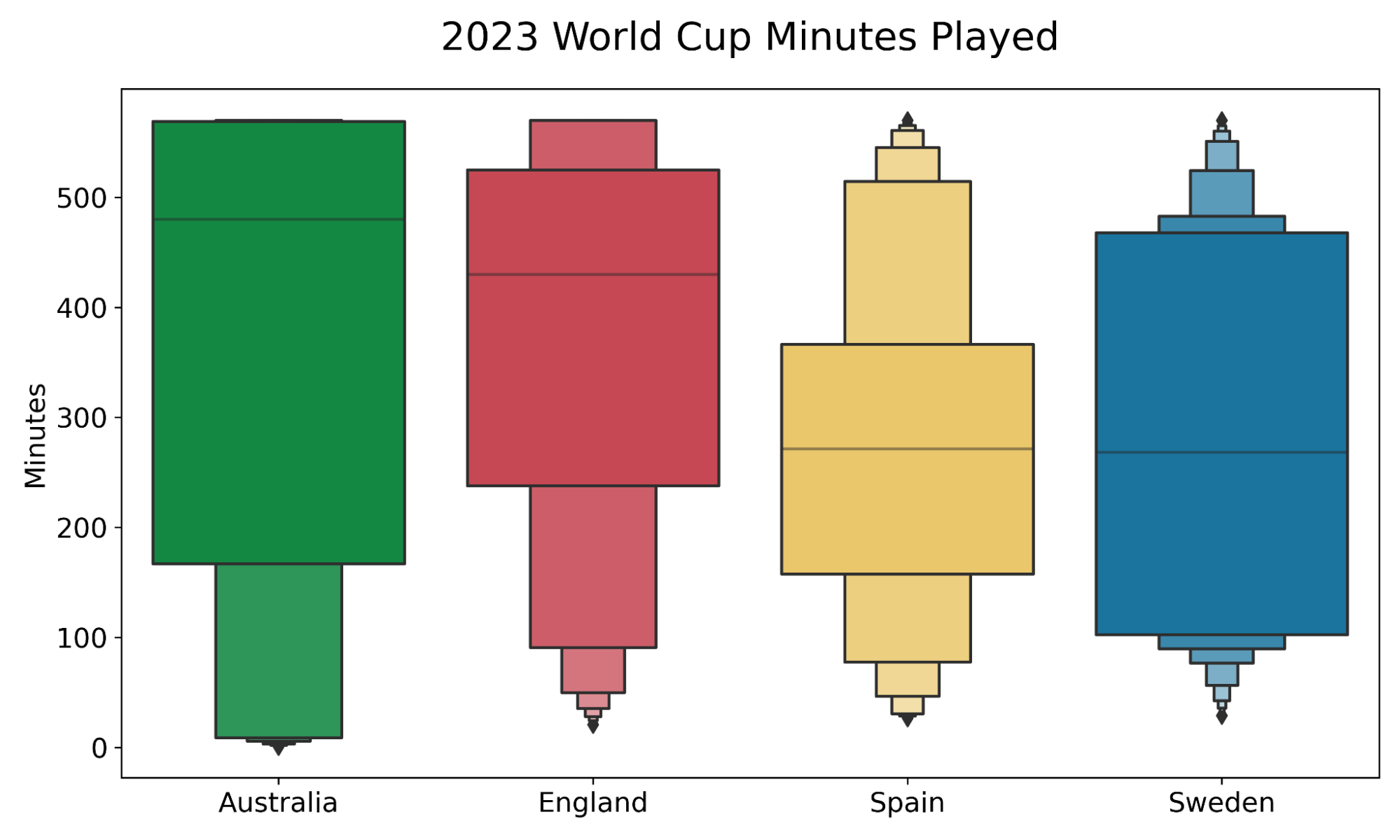
Spain is likely to be the fresher squad. They have a younger overall team, and they have fewer players that have played a high or very-high number of minutes coming into the tournament. Across the tournament they have used more players than England, all but one of their 23 woman squad seeing action, which has resulted in them playing significantly fewer minutes than their opponents. On average, Spain’s players have over a game less in the legs, and the younger squad should be more than capable of being physically in peak form on Sunday. Spain also has an additional rest day going into the Final.
While squad cohesion and lineup stability is an important factor in determining performance, and this element is certainly in England’s favour, it has been deemed less important than good load management in Kitman Labs recent research into factors relating to footballing performance.
Verdict: Advantage Spain
Rating and Recent Performance
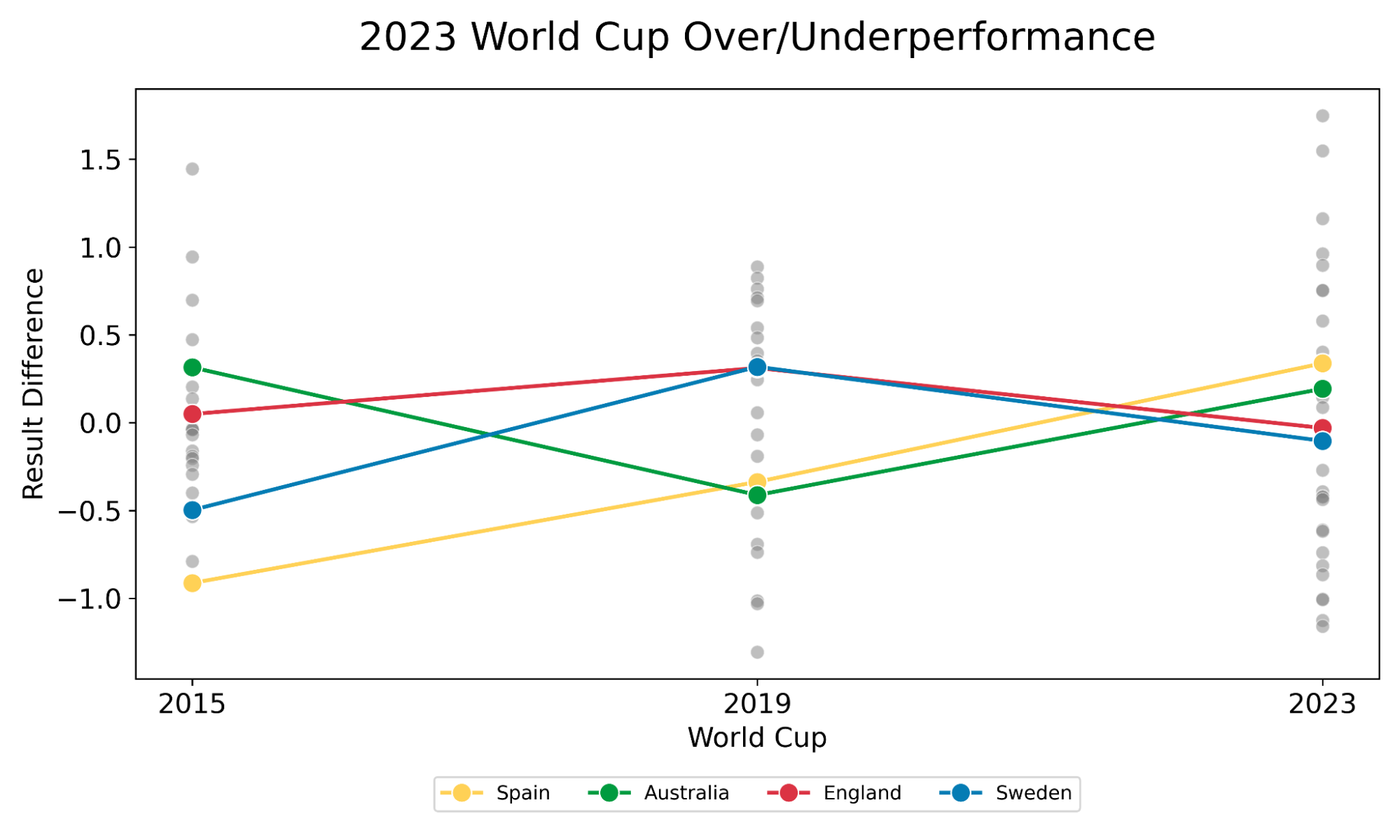
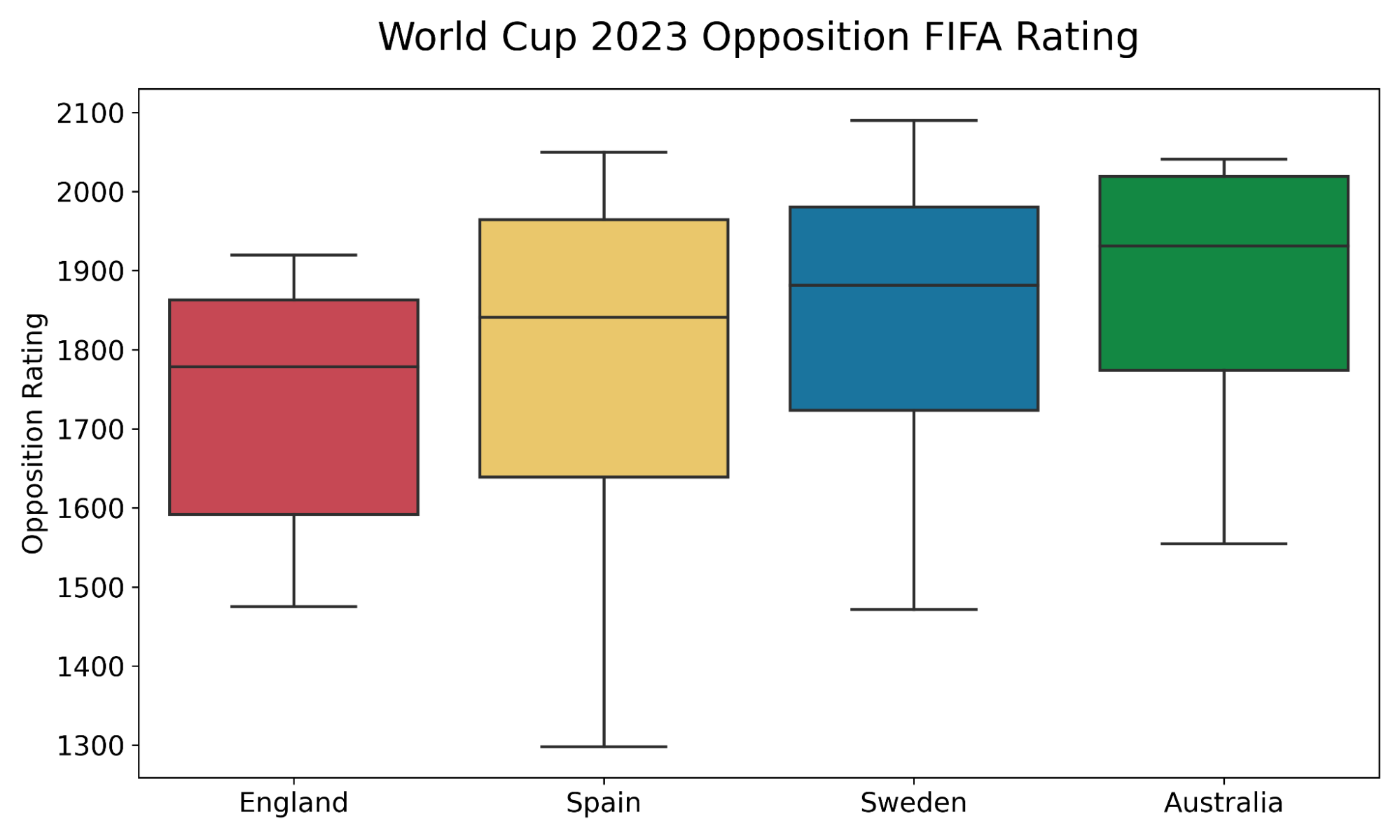
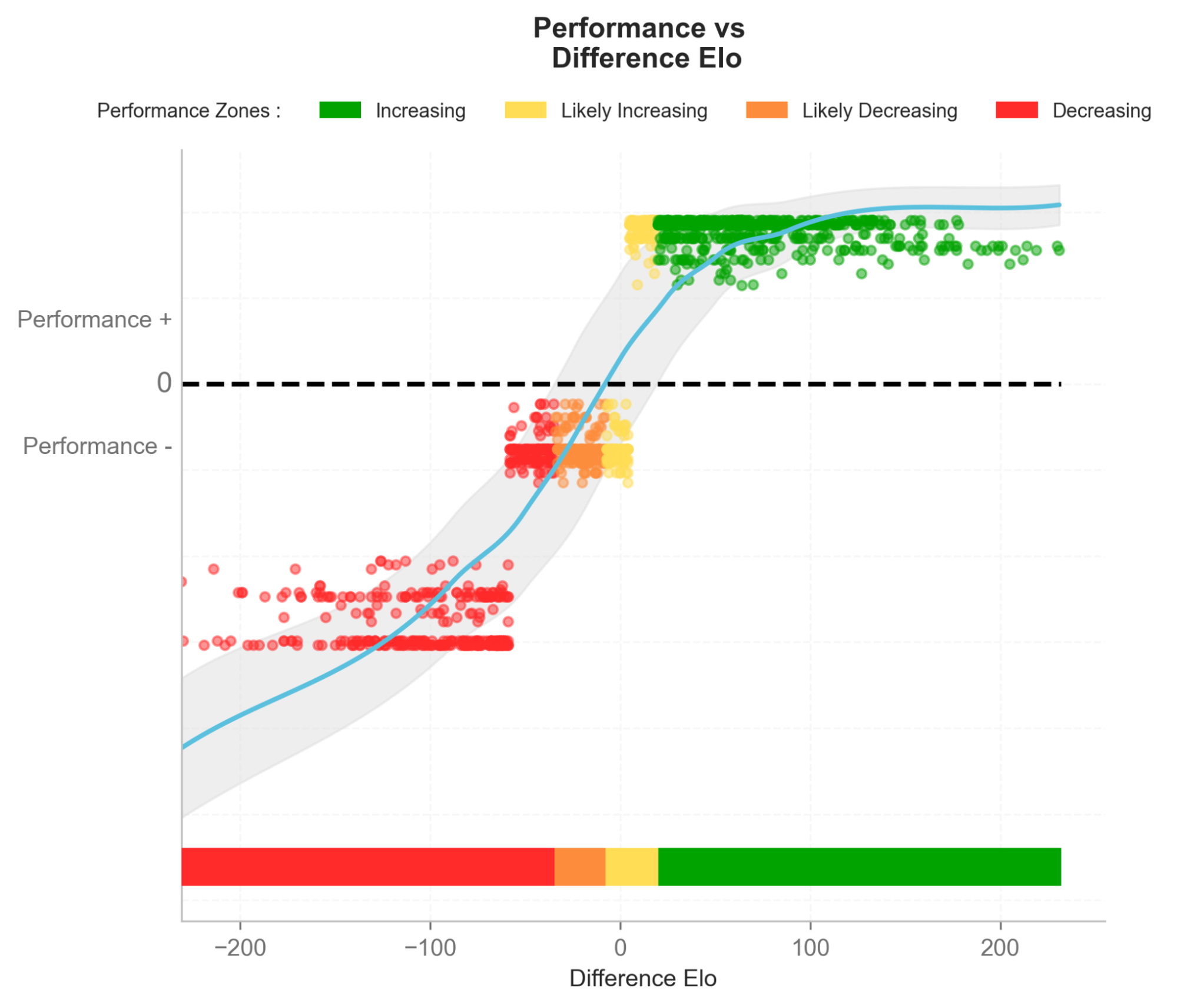
England is the higher rated in this game, and Kitman Labs PIRI research suggests that this is a key differentiator in terms of good performance in a game. However, recent performance is an equally strong indicator – Spain is currently overperforming their ranking, and have also gotten to the World Cup final having played a higher level of opposition. Who is favoured here? Anybody’s guess…
Verdict: Tie
Travel Distance
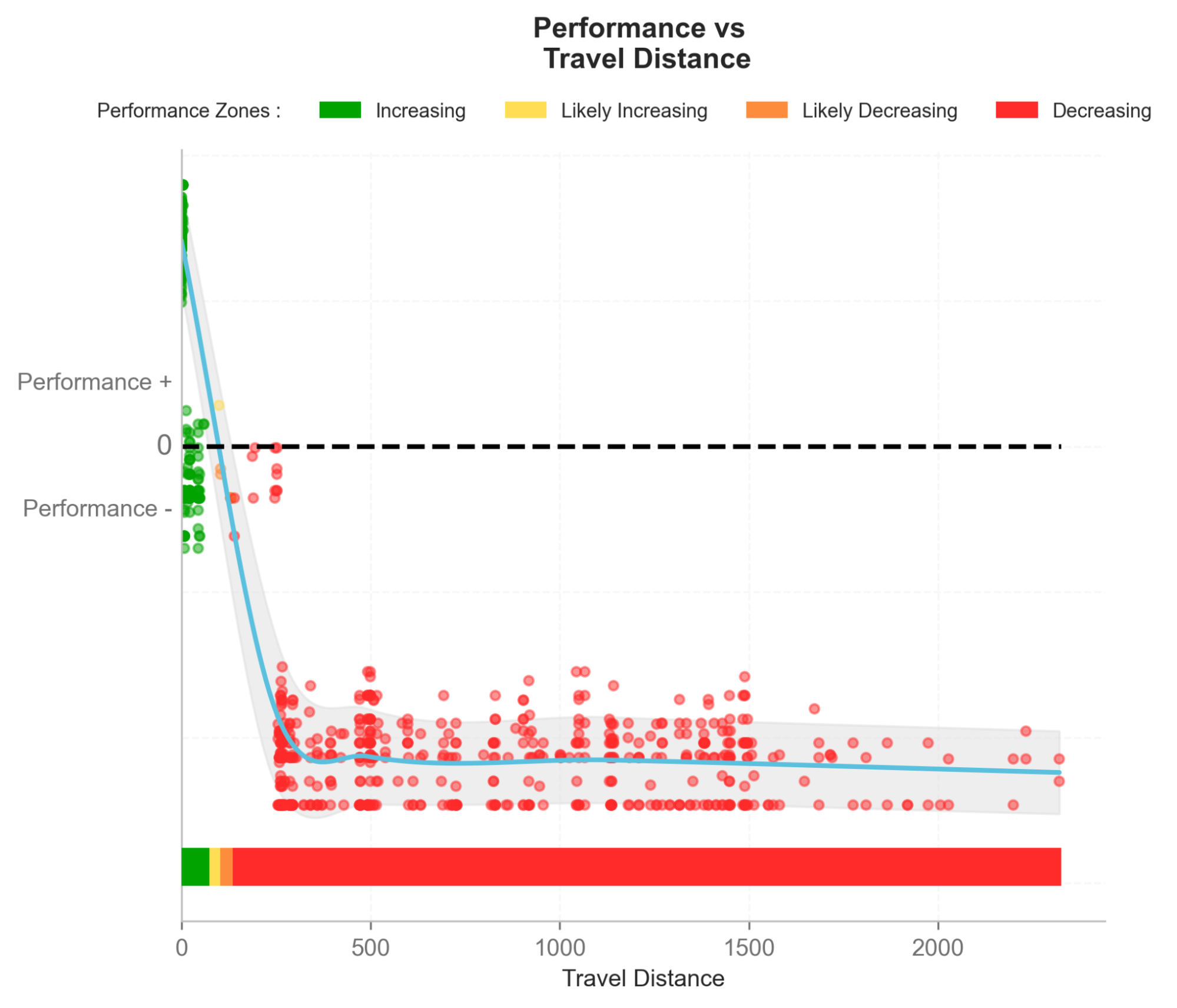
Kitman Labs PIRI research suggests that travel distance is the single biggest determinant of performance in elite football. Especially teams that play back-to-back games in the same venue (i.e. no travel distance) have a significant performance improvement in the game. England will be playing their third back-to-back game at Sydney’s Stadium Australia on Sunday. In contrast, Spain has a 2000 km journey and two time-zone changes to deal with from Tuesday’s semi-final
Verdict: Advantage England
International Experience
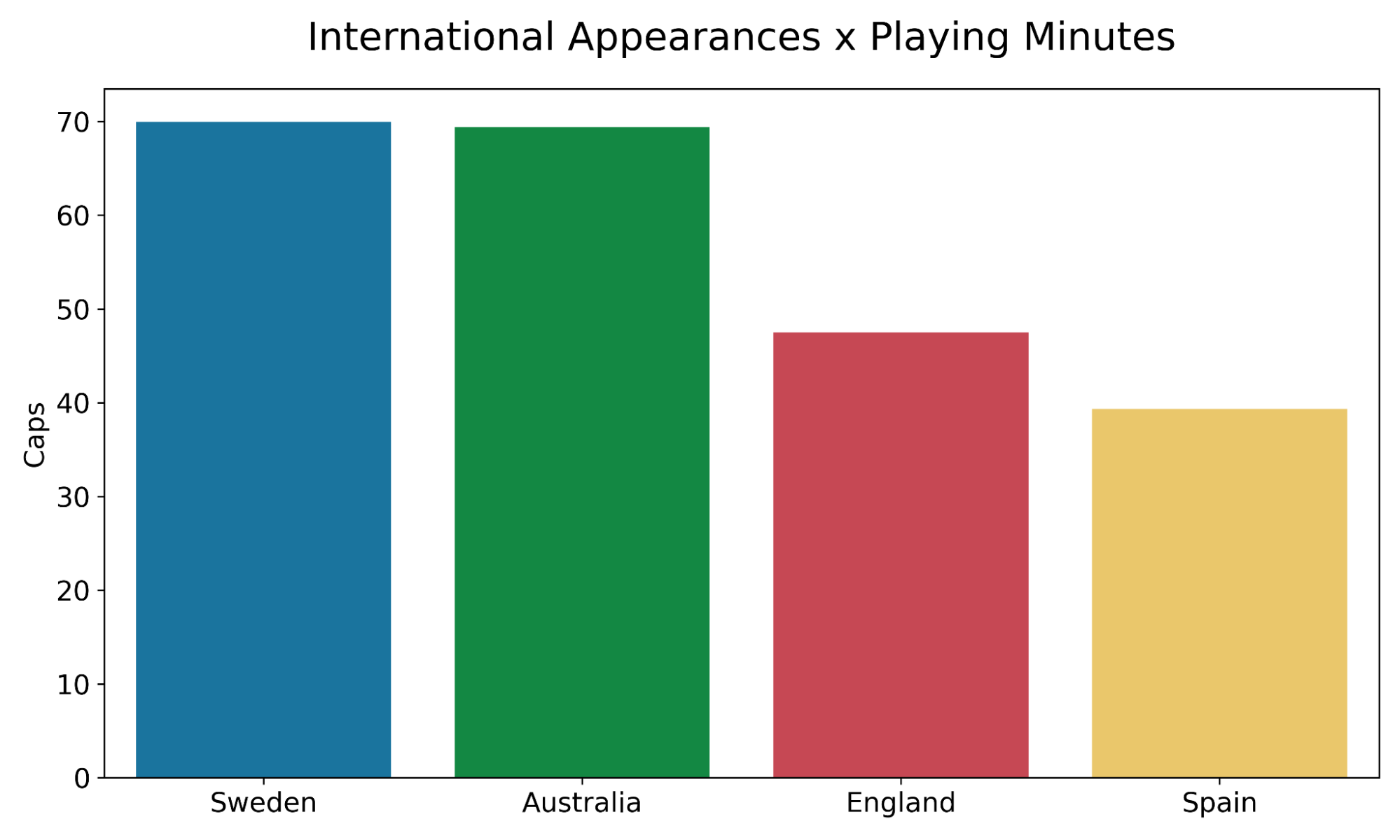
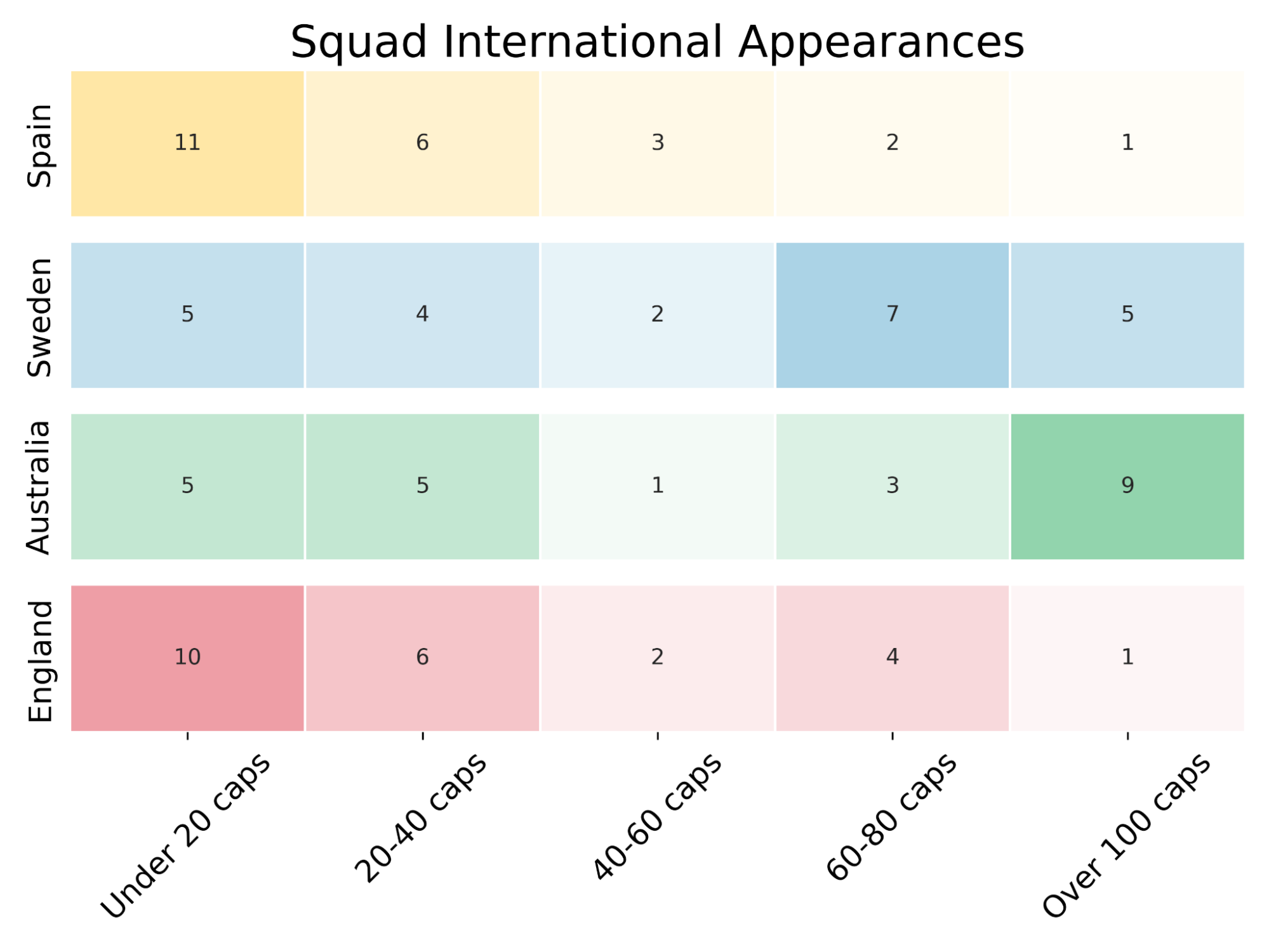
There is not much to differentiate between the two teams when it comes to international experience. Both sides have similar levels of experience in their squad, while England holds a very slight edge in terms of having more international experience on the field. England does have greater experience in international knockout matches having made the semi finals in the last world cup, and winning the European championships. They also have experience of beating Spain in a major tournament after last year’s European Quarter Finals, but it is unclear how much of a benefit this will be to the team.
The experience of the coaches may be a difference-maker, however. Sarina Wiegman is in her fourth straight major international final. She has won the last two European Championships, and took the Netherlands to the World Cup final in 2019. PIRI research also suggests Wiegman may be entering her peak with the squad – performance in partnerships often improving after 12 months in charge. Meanwhile, Jorge Vilda has experienced his first win in a knockout match during this World Cup. The experience differential between both coaches at this level of the game could be a deciding factor on the outcome.
Verdict: Advantage England
Wrap Up
It’s honours even as far as comparing England and Spain in this analysis goes. Spain has an advantage in squad quality and depth, goalscoring ability and freshness, while England is ahead defensively, has greater experience at this level and has the advantage of being based in Australia.
The statistics show that these are two incredibly well matched teams, and their strengths compliment each other well. Where Spain is an offensive powerhouse, creating chances and scoring at will, England has been strong in defence, limiting the quality of chances and conceding only three goals in the tournament. Weakness wise, the teams are also equally well matched – while England has created fewer chances and scored fewer goals, their conversion rate is quite good. Meanwhile, Spain does not let teams create many opportunities against them, but the opportunities that are created often result in goals. Will Spain’s attacking talents shine over England’s defensive strength, or will England’s attack be able to expose Spain’s frailties at the back?
Of course, not all categories are created equal. We have given England the advantage of experience due to their performance in last year’s European Championships and their head coach. However, Spain has 9 players from the Champions League winning FC Barcelona side, so are not unfamiliar with recent major finals either. Odds makers are suggesting Spain has a minor edge going into the game, and if we were to weight categories this is a conclusion we would be inclined to agree with. However, any advantage Spain has is incredibly minor, and the effect of travel distance may diminish these. No doubt, this has the makings of a fascinating final that is too close to confidently call.




